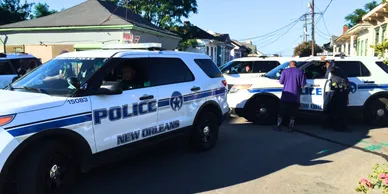Louisiana's 25-Foot Police Buffer Law Temporarily Blocked Amid Constitutional Concerns
by: D. D. Reese
A Louisiana law enacted in 2024 that criminalized approaching within 25 feet of a police officer after being ordered to stay back has been temporarily blocked by a federal judge. The legislation, signed by Governor Jeff Landry, aimed to enhance officer safety but has faced significant legal challenges over potential infringements on constitutional rights.
Overview of the Law
The law made it a misdemeanor offense to knowingly or intentionally approach within 25 feet of a law enforcement officer engaged in official duties after being instructed to stop or retreat. Violators faced penalties of up to 60 days in jail, a $500 fine, or both. Proponents argued that the buffer zone was necessary to protect officers from potential threats and to allow them to perform their duties without interference.
Legal Challenges and Court Ruling
In July 2024, a coalition of six media organizations filed a lawsuit challenging the law, asserting that it infringed upon First and Fourteenth Amendment rights by impeding the public's ability to observe and record police activities. On January 31, 2025, U.S. District Judge John W. deGravelles issued a preliminary injunction, halting enforcement of the law. The judge ruled that the statute was unconstitutionally vague, granting officers excessive discretion and potentially leading to arbitrary enforcement.
Pros and Cons
Pros:
Enhanced Officer Safety: Supporters contend that the law provides a necessary safety buffer, reducing the risk of harm to officers during volatile situations.
Operational Efficiency: By limiting close proximity, officers may perform their duties with fewer distractions and potential interferences.
Cons:
First Amendment Concerns: Critics argue that the law infringes on the public's right to record and observe police conduct, a vital tool for accountability.
Vagueness and Enforcement: The law's lack of clear guidelines could lead to inconsistent application and potential misuse by law enforcement.
Broader Implications
Louisiana's buffer zone law is part of a broader trend, with similar statutes enacted in states like Arizona and Indiana. However, these laws have also faced legal challenges and have been blocked by federal courts due to constitutional concerns.
The temporary injunction in Louisiana underscores the ongoing debate between ensuring law enforcement safety and upholding constitutional rights. As legal proceedings continue, the balance between these priorities remains a focal point of public discourse.
